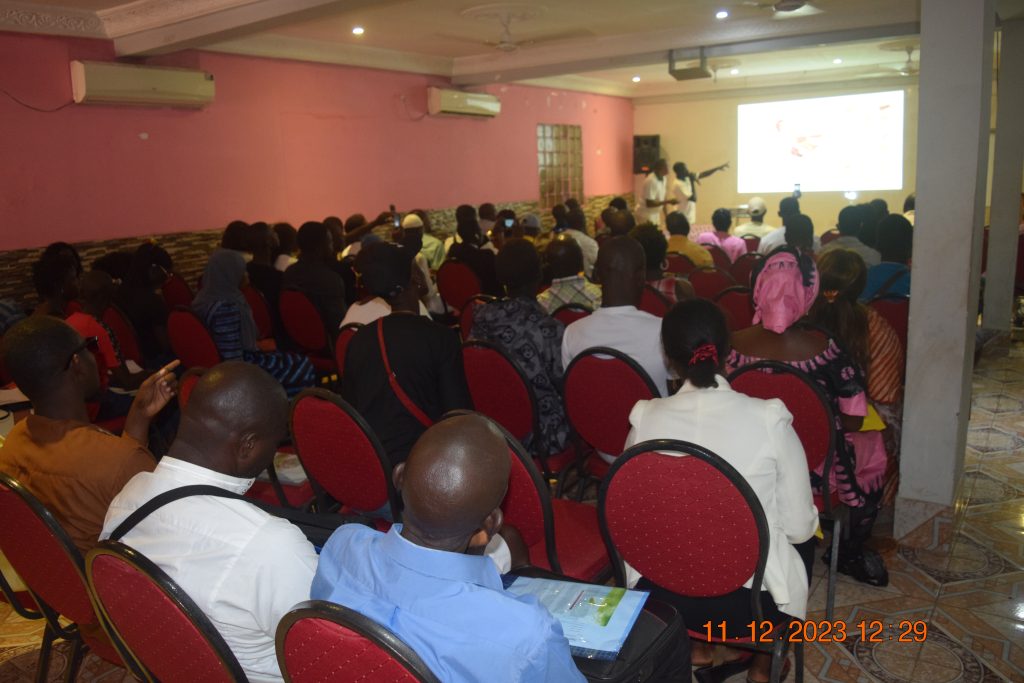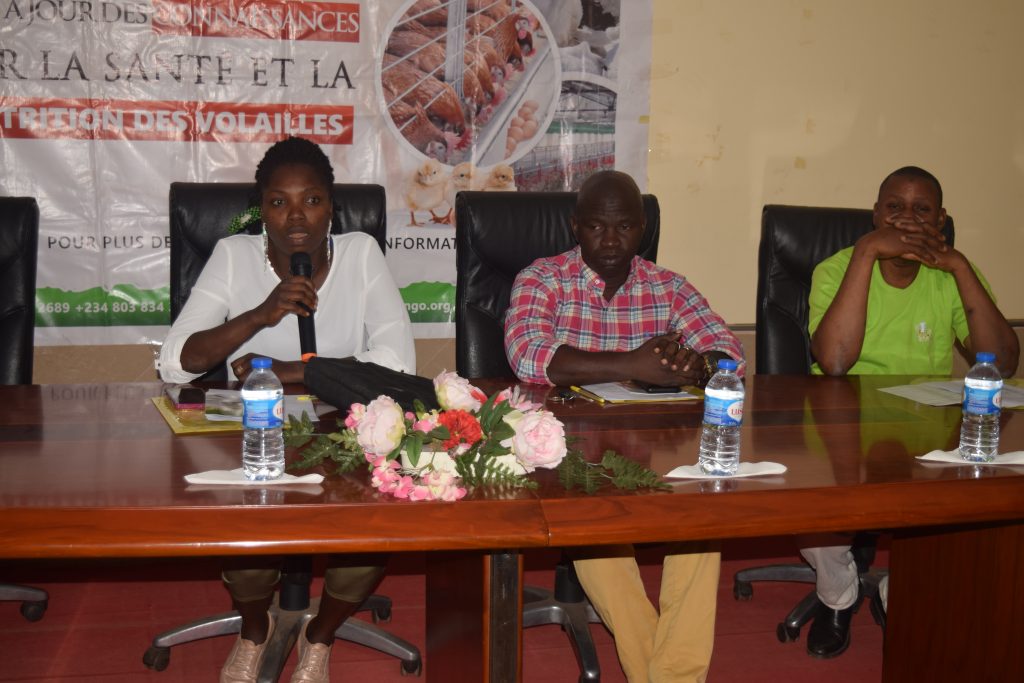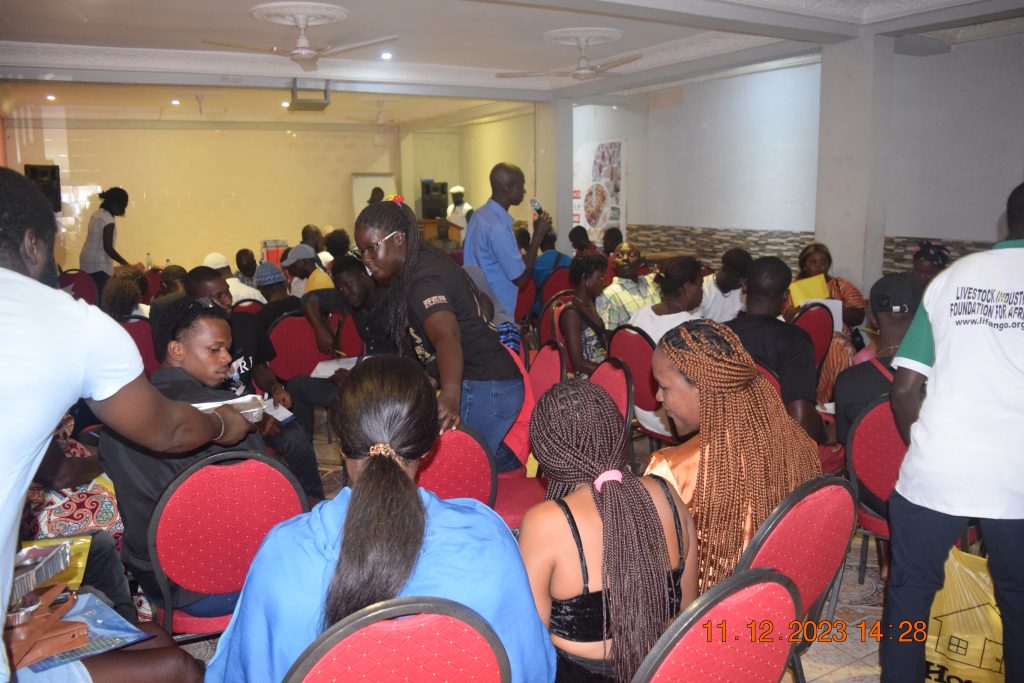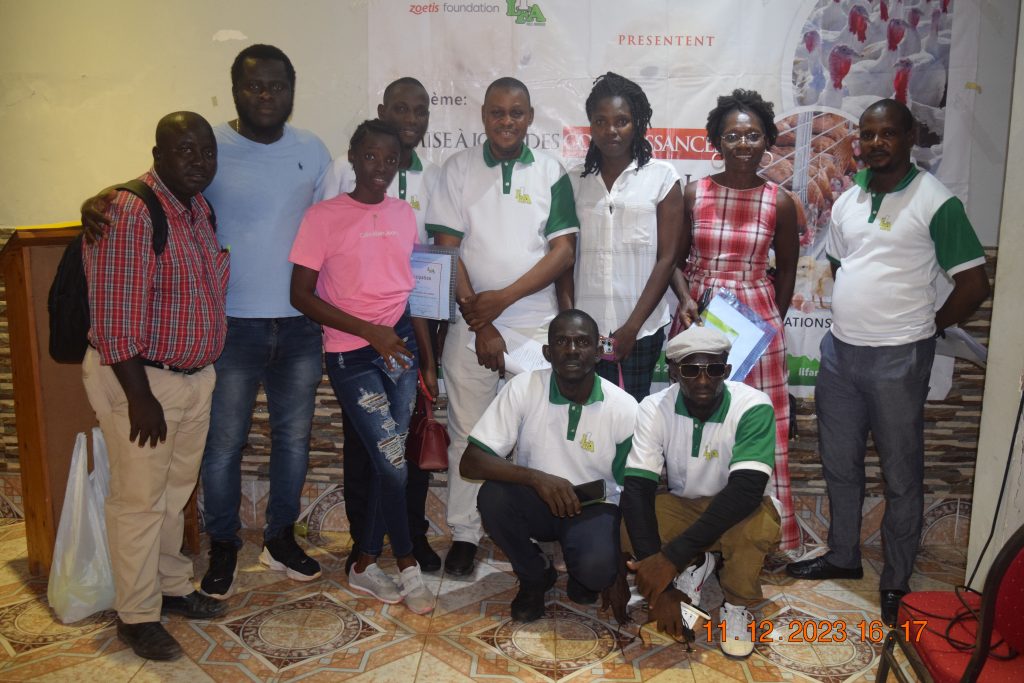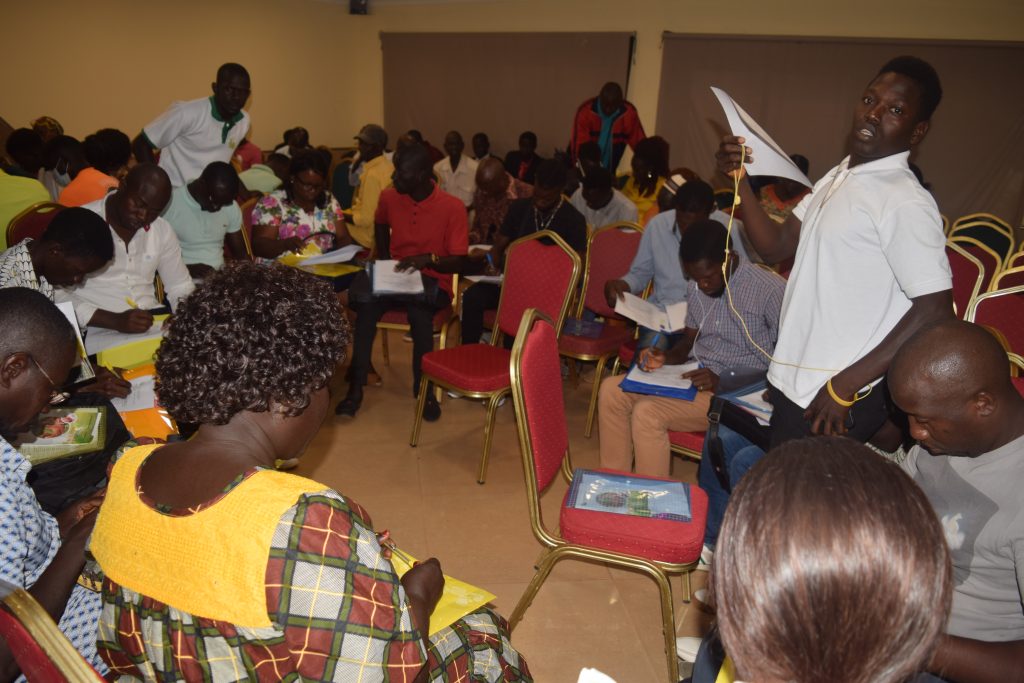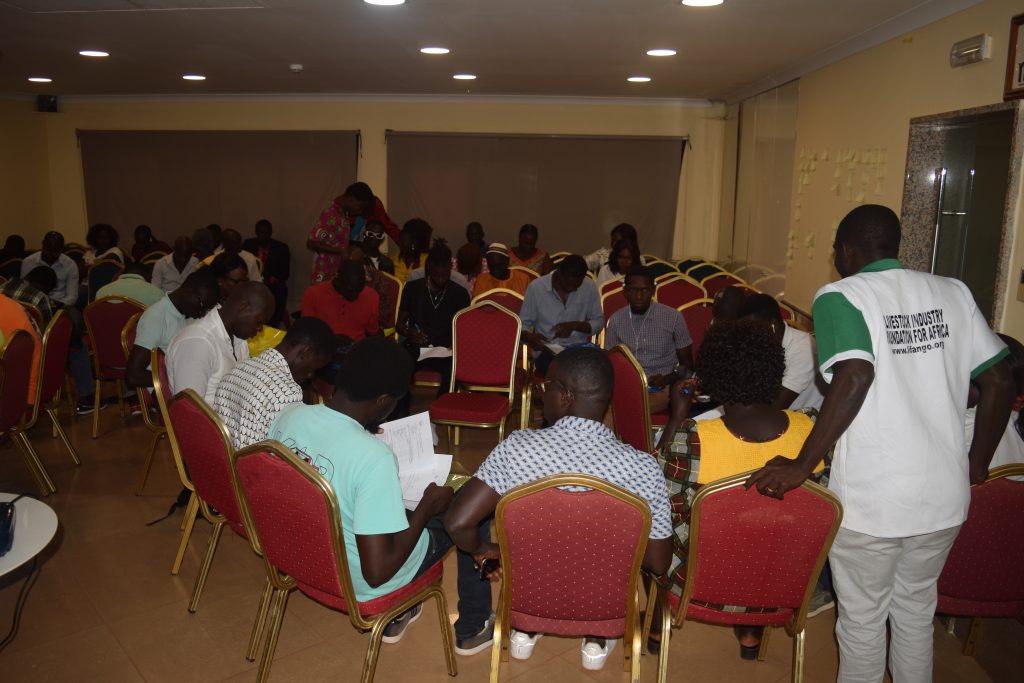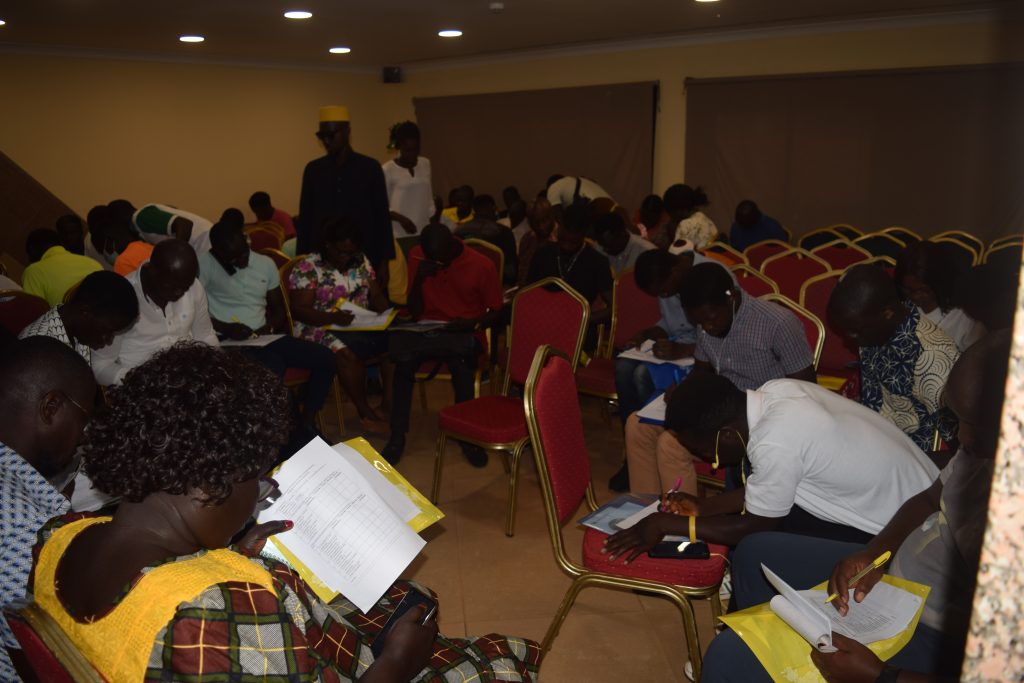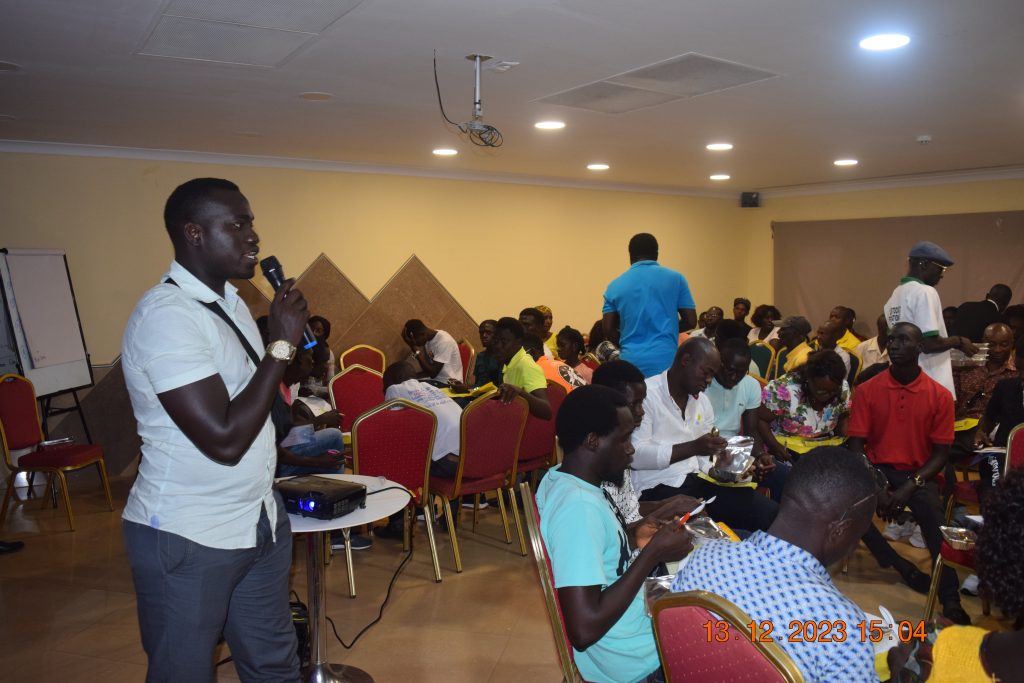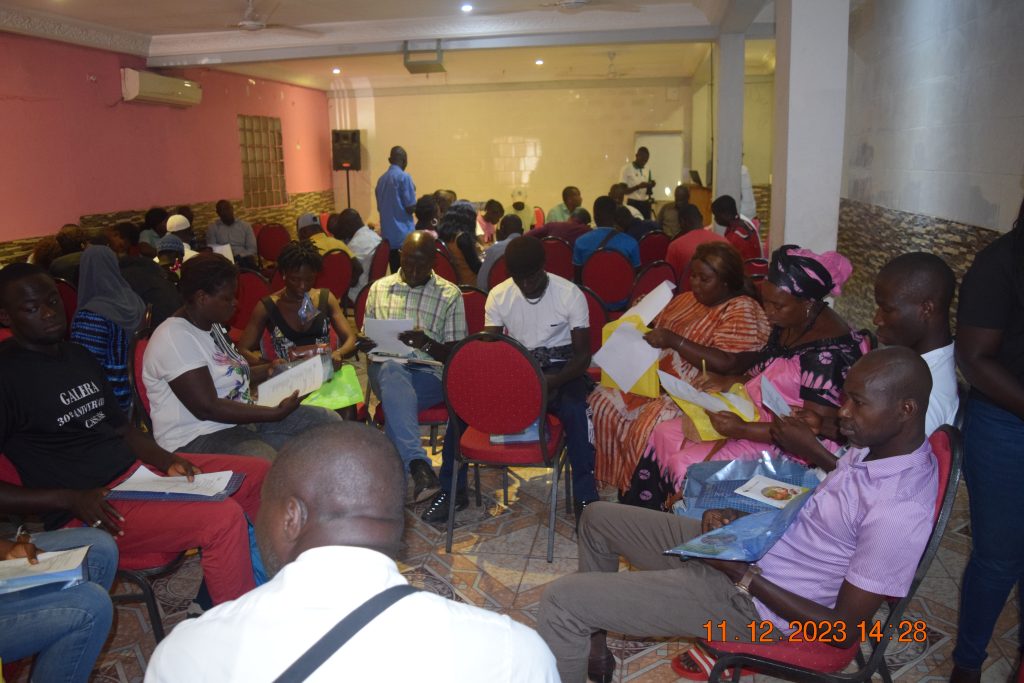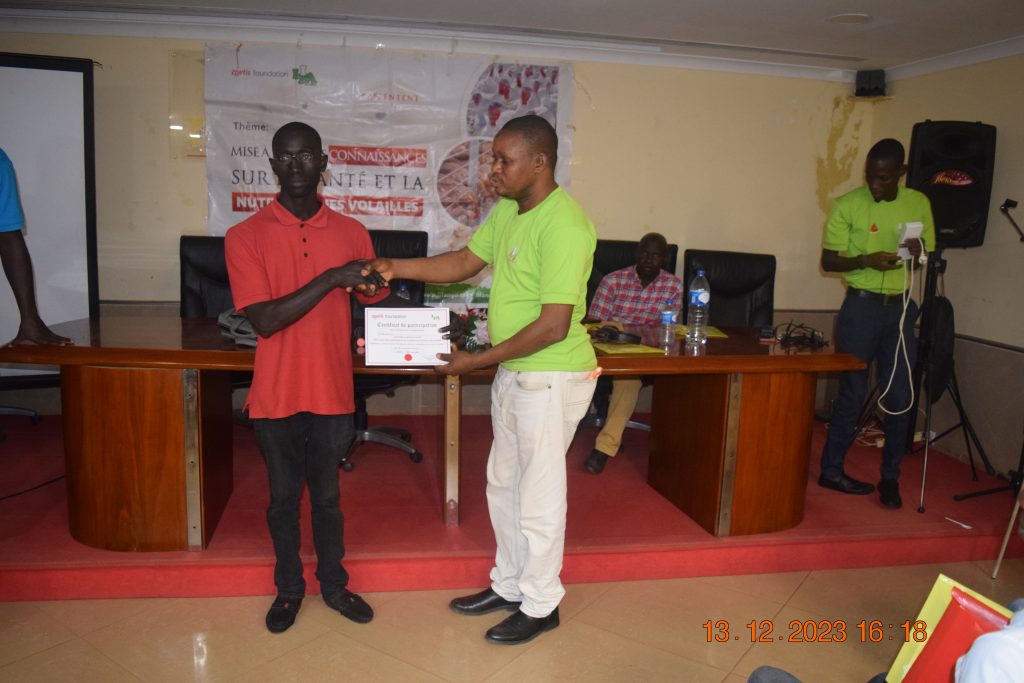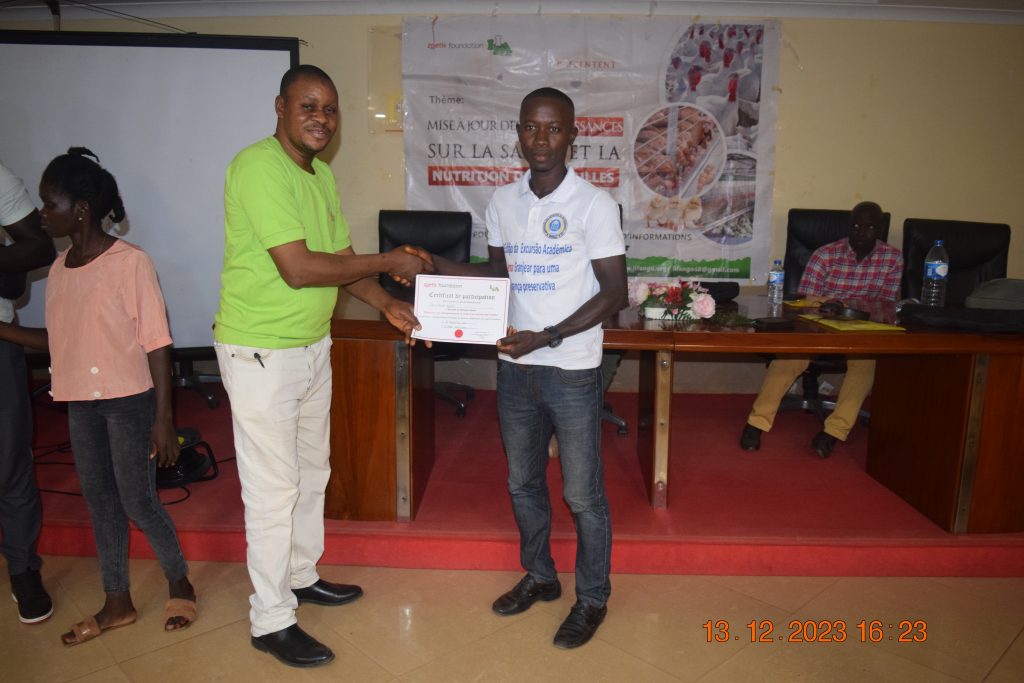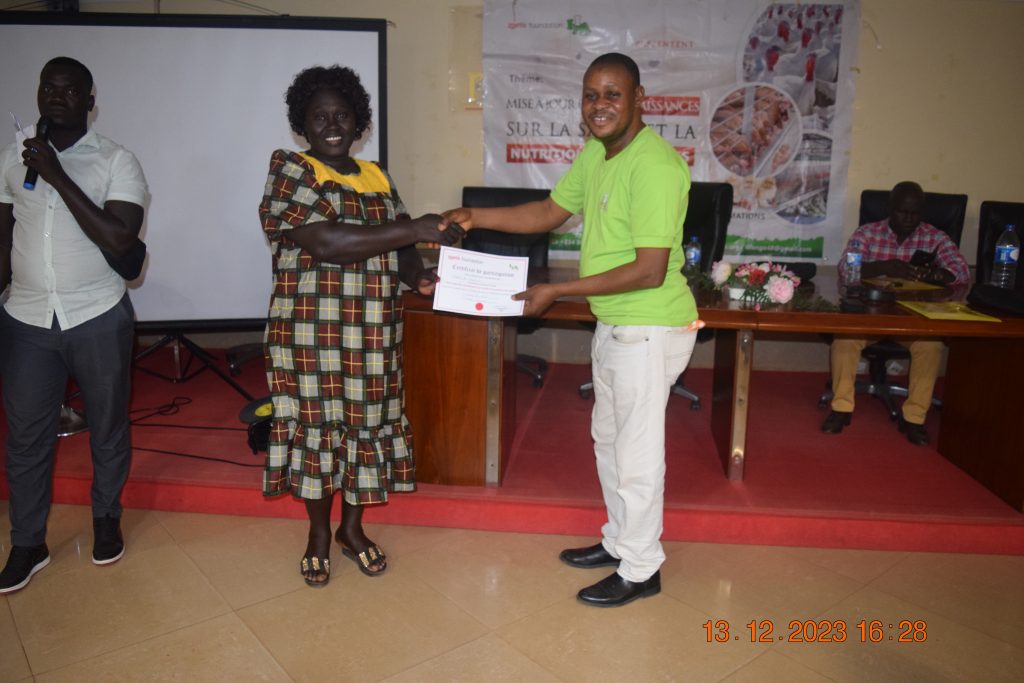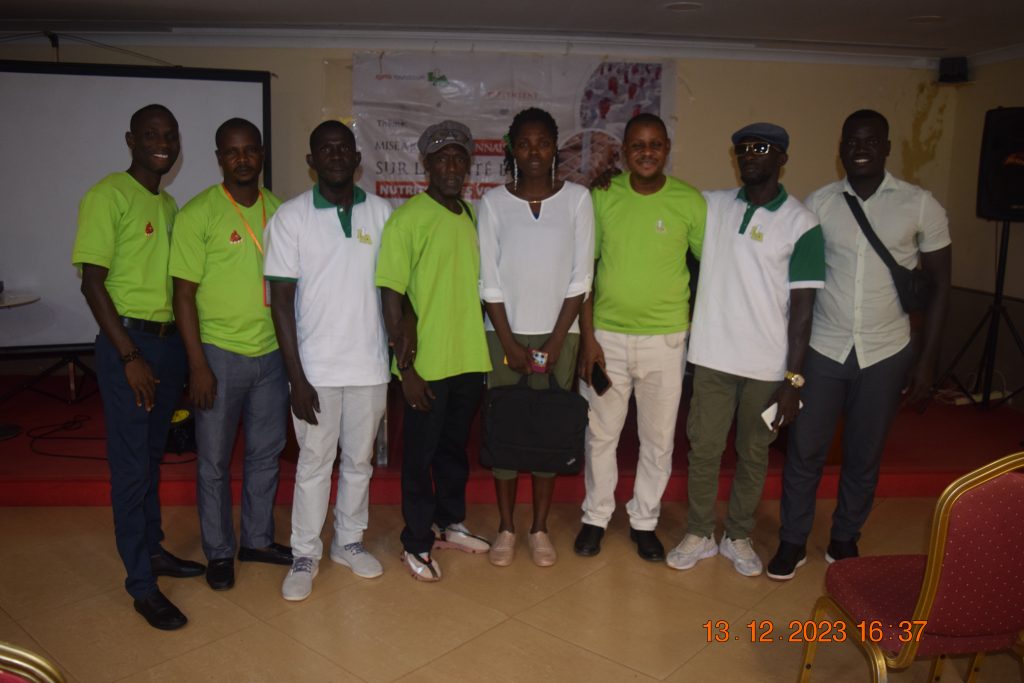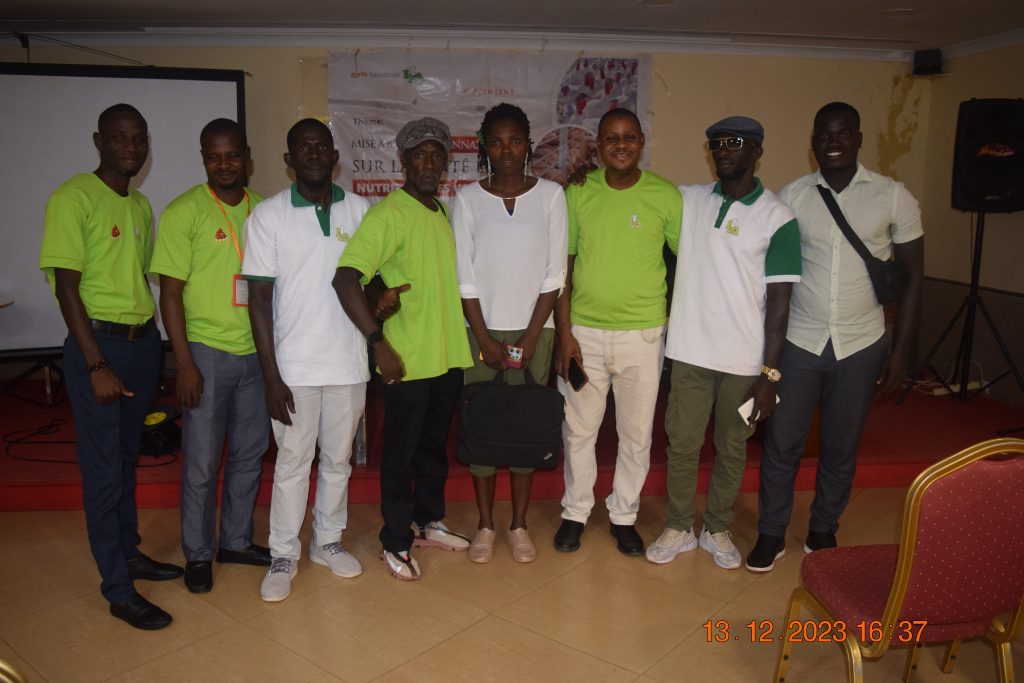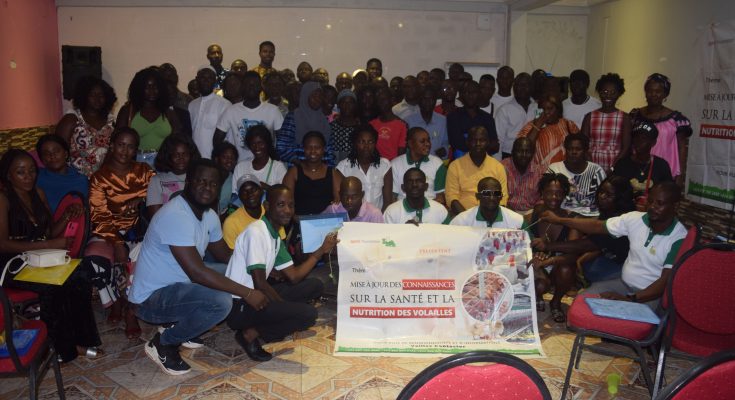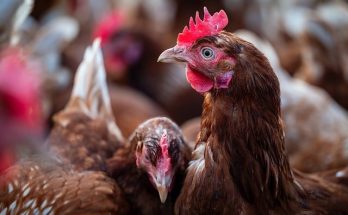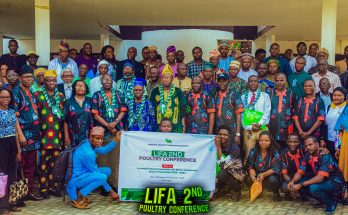The Knowledge Update on Poultry Health and Nutrition training program recently concluded in Guinea Bissau, marking a significant milestone in the ongoing efforts to bolster livestock livelihoods in West Africa. The program, which took place at the Hotel Bassamar in Santalucia on December 12th and at Hotel Malaika in Achada do Burro on December 14th, 2023, was generously supported by the Zoetis Foundation. Its overarching goal was to empower participants with the latest knowledge and skills essential for ensuring the well-being and productivity of poultry, thereby fostering sustainable growth within the local livestock industry.
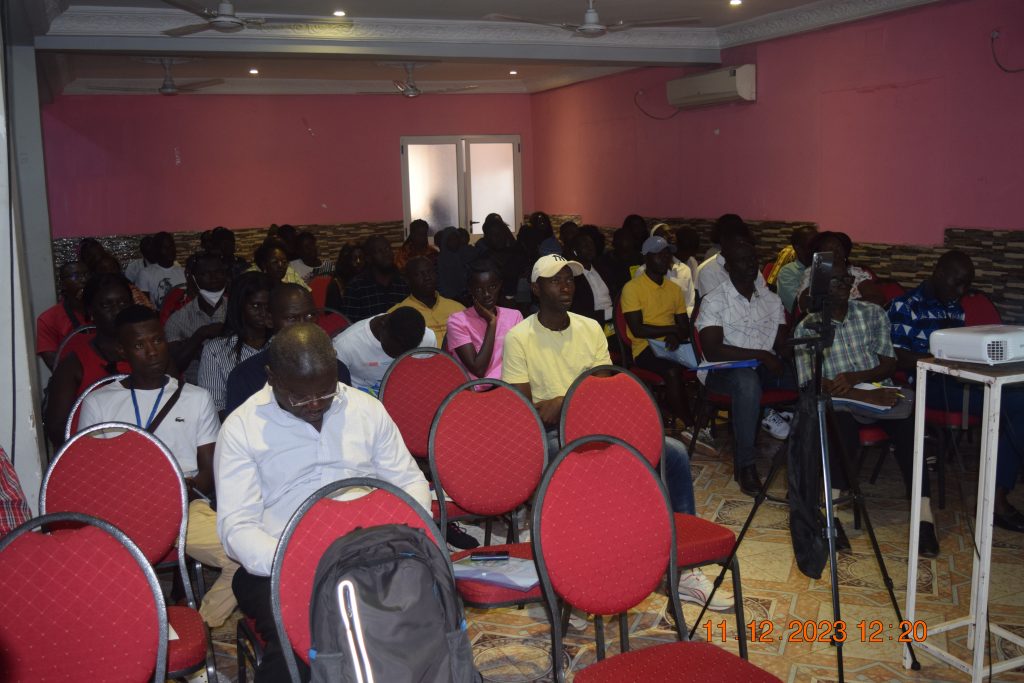
One of the notable features of the training program was its extensive outreach, attracting a robust attendance of 419 enthusiastic participants for the in-person sessions. To extend its impact even further, the program was simultaneously live-streamed via the LIFA Facebook page, allowing a broader audience to benefit from the valuable insights shared during the event. The presence of esteemed personalities added a layer of expertise and credibility to the discussions. Notable figures in attendance included Mrs. Janoveva Victor Sampa, the esteemed country poultry president, Mr. Sadjo Naqui from the Chief of Foreign Ministering Department, and the keynote speaker, Prof Ola Idowu. Their contributions enriched the program’s content and discussions, reflecting a collaborative effort towards advancing poultry health and nutrition practices.
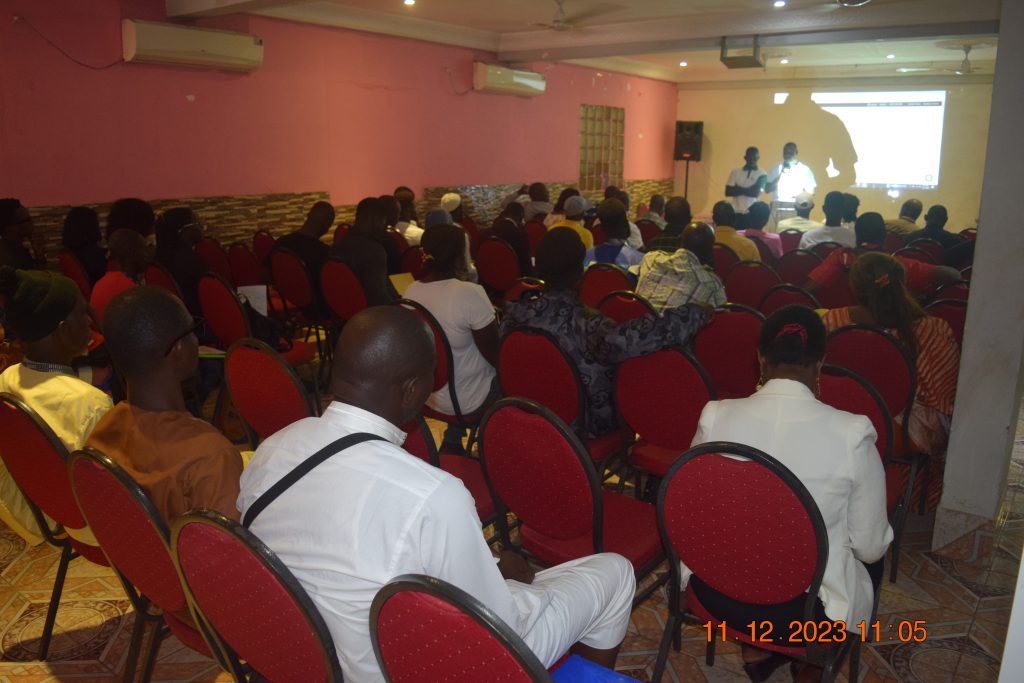
A closer look at the participant demographics revealed a diverse and inclusive mix of backgrounds. Among the attendees, 5.9% were veterinarians, 2.1% were esteemed animal scientists, 65.2% represented the crucial role of poultry farmers, and 26.7% hailed from various other essential sectors within the livestock industry. This diverse representation facilitated meaningful exchanges of ideas and experiences, contributing to a more comprehensive understanding of the challenges and opportunities within the poultry sector. The program achieved a commendable gender balance, with 61.3% male and 38.7% female attendees, underscoring its commitment to inclusivity and diversity.
Lecture Delivered
Dr. Stephen Adejoro
Title: Building suitable Poultry houses in Sub Sahara Africa
Dr. Stephen Adejoro, a renowned expert in poultry farming delivered a comprehensive presentation on the critical considerations for establishing a sustainable and efficient poultry farm. His presentation shed light on the multifaceted factors that contribute to the success and longevity of such poultry business.
One of the primary focal points of Dr. Adejoro’s presentation was the significance of selecting the right location for a poultry farm. He emphasized the importance of meticulous attention to environmental factors, land size, and infrastructure. Assessing characteristics such as slope, drainage, and soil quality is crucial in determining a suitable site for poultry operations. Dr. Adejoro highlighted the necessity of choosing a level area with natural drainage capabilities, conducive to supporting poultry houses. Furthermore, optimizing sunlight exposure while considering heat management and airflow dynamics is integral to the site planning process.
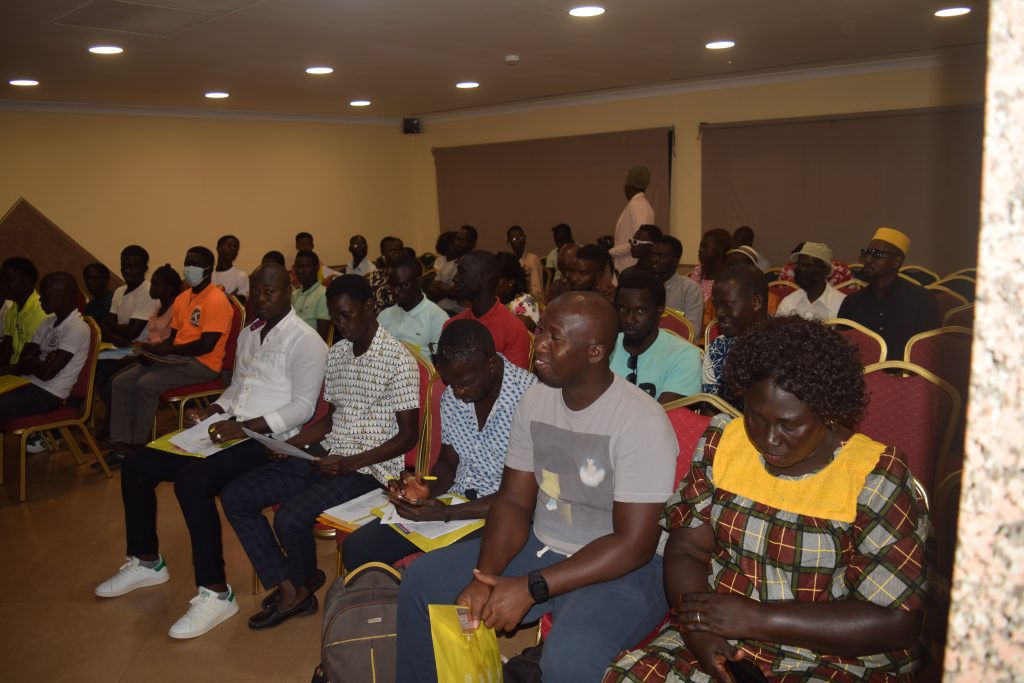
A key highlight of Dr. Adejoro’s discourse was the risk associated with overcapitalization in poultry housing. He elaborated on the potential clinical, nutritional, economic, and operational implications of overcapitalized poultry houses. Issues such as poor ventilation, increased disease transmission, elevated maintenance costs, and excessive workload for personnel were underscored as significant concerns. These challenges not only impact the health and well-being of the birds but also affect the overall economic viability and sustainability of the farm.
To address the risks posed by overcapitalization, Dr. Adejoro outlined strategic mitigation measures. These include implementing cost-saving measures, prioritizing regular maintenance protocols, and periodically evaluating the farm’s financial standing. Additionally, investing in personnel training to effectively manage sophisticated systems was emphasized as a critical component of farm management.
Dr. Adejoro reiterated the importance of designing poultry houses with optimal airflow, insulation, and resilience to local weather conditions. Striking a balance between cost-effectiveness, quality assurance, scalability, and environmental considerations is essential for establishing a sustainable and efficient poultry farm. His insights provided attendees with valuable guidance and strategies for navigating the complexities of poultry farming with a focus on long-term success and profitability.
Safiriyu Idowu Ola PhD
Title: Effect of Climate Change on Poultry Production: Adaptation and Mitigation through Nutrition
Prof. Ola Idowu delved into the intricate relationship between climate change and its impact on poultry production. His presentation shed light on the evolving challenges faced by the poultry industry in the face of climate variability.
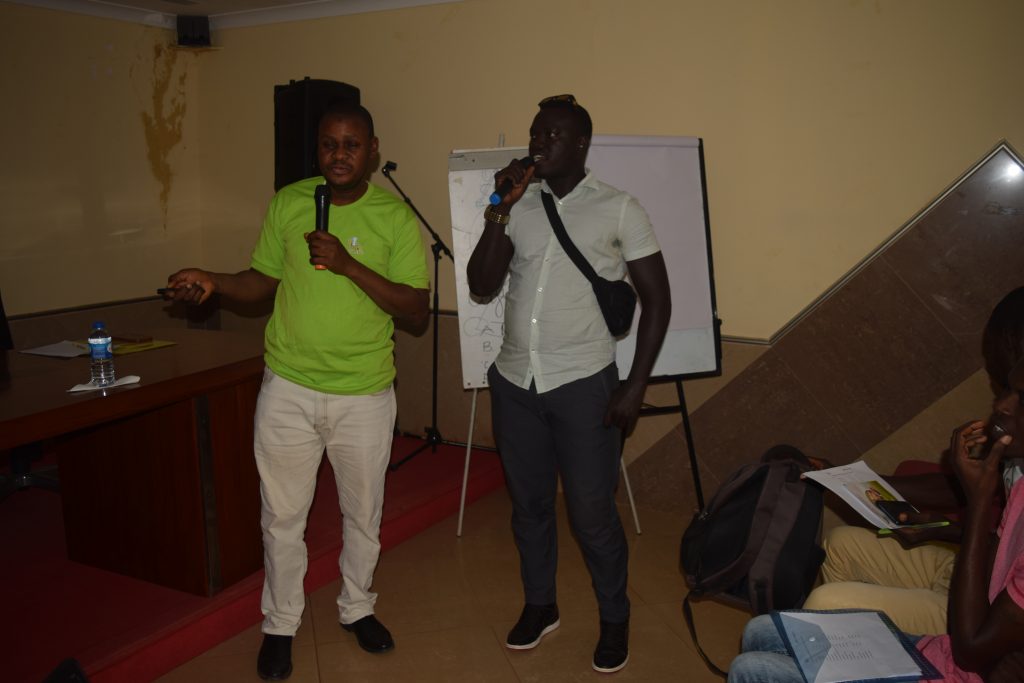
Climate change, as outlined by Prof. Idowu, refers to the gradual shifts in Earth’s interconnected weather elements over the past few decades. This includes a notable rise in global temperatures, particularly evident from the mid-20th century to the present day. Statistics reveal a concerning trend, with Earth’s temperature escalating by approximately 0.14°F (0.08°C) per decade since 1880. This rate accelerated to 0.32°F (0.18°C) per decade post-1981, underscoring the urgency of climate action.
Human activities play a pivotal role in exacerbating climate change through the production of greenhouse gases (GHGs). Activities such as fossil fuel combustion, urbanization, industrialization, deforestation, agricultural practices, industrial waste, and improper waste disposal contribute significantly to GHG emissions. These emissions, in turn, contribute to rising global temperatures and environmental disruptions.
The impact of climate change on poultry production is multifaceted and far-reaching. Prof. Idowu highlighted that poultry farming faces challenges such as increased temperatures, which adversely affect production outcomes. These effects manifest in reduced egg production, elevated disease prevalence, decreased feed intake, lower meat production, and an increased incidence of egg spoilage. These challenges not only impact production metrics but also pose economic and health-related concerns for poultry farmers.
To address these challenges, Prof. Idowu proposed strategic interventions. These include implementing feeding strategies during cooler hours, providing cold water consistently, adjusting dietary energy and fat content to suit climatic conditions, supplementing diets with essential nutrients like vitamins, minerals, and probiotics, ensuring proper ventilation in poultry houses, and managing stock density effectively. These interventions aim to mitigate the negative impacts of climate change on poultry health and productivity.
Nutritional management emerges as a key aspect of climate change adaptation in poultry farming. Prof. Idowu emphasized the importance of selecting suitable feeders, offering feeds with increased energy and fat content, and incorporating diverse nutrients to bolster poultry resilience against climate-induced challenges. These strategies, although demanding, are accessible and essential for sustaining poultry businesses, particularly for smallholder farmers in Guinea Bissau and across Africa.
In conclusion, Prof. Idowu reiterated the undeniable reality of climate change and its profound implications for poultry production. While human activities contribute to these challenges, proactive measures and innovative solutions, especially in nutritional management, can mitigate adverse impacts and foster sustainable poultry farming practices in a changing climate landscape.
Mr. Lawal Afeez.
Title: Importance of Record Keeping In Poultry Management for Decision Making
Mr. Lawal emphasized the critical role of maintaining detailed records in the success and efficiency of poultry operations. His presentation shed light on the significance of comprehensive record-keeping in steering decision-making processes and ensuring effective farm management.
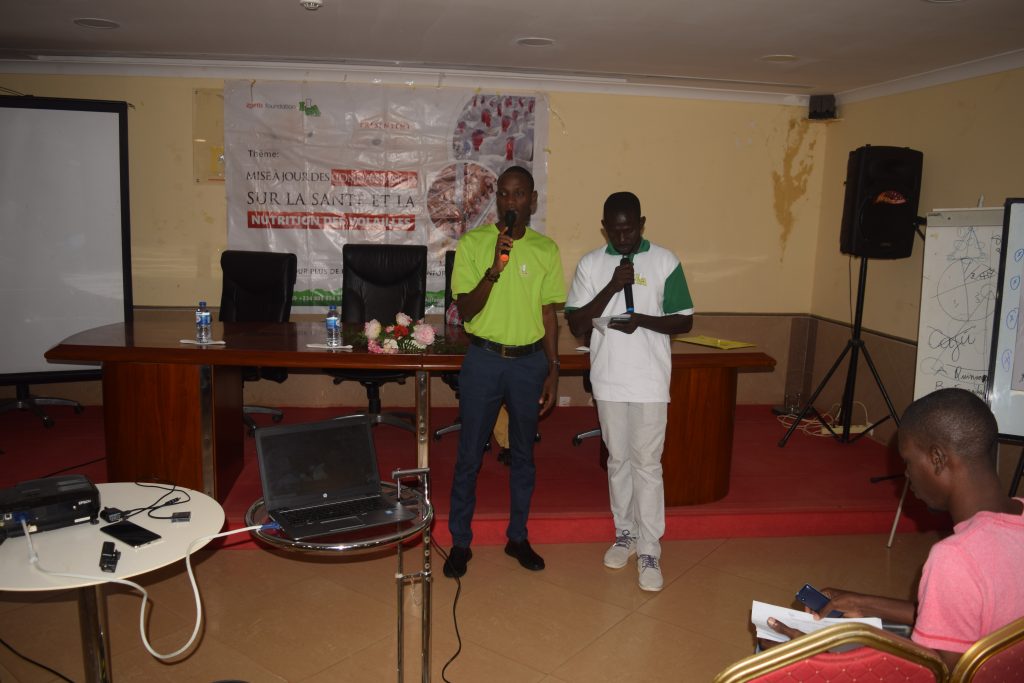
Mr. Lawal highlighted that within the realm of poultry farming, meticulous record-keeping is not just beneficial but fundamental. It serves as a cornerstone for informed decision-making, strategic planning, and precise monitoring of expenses throughout various production cycles. Key pieces of information such as flock management plans, bird acquisition specifics, vaccination records, and financial statements are identified as essential components of effective record-keeping practices in poultry farming.
One of the key benefits emphasized by Mr. Lawal is how comprehensive records significantly contribute to better decision-making processes. These records aid in strategic planning, accurate cost monitoring, prompt identification and resolution of issues, maintenance of the farm’s credibility, facilitation of performance evaluation, and overall enhancement of farm management practices. He stressed the importance of categorizing poultry records into production, management, and financial categories, with each segment capturing specific aspects crucial for successful farm management.
Regarding record-keeping methods, Mr. Lawal outlined that poultry farmers commonly utilize either handwritten or computer-based systems to maintain these vital records. Both methods aim to ensure accuracy, accessibility, and reliability of the recorded data. The presentation highlighted key poultry records to keep, ranging from mortality and egg production records to staff roles, vaccination details, sales figures, and documentation of disease outbreaks.
In conclusion, Mr. Lawal reiterated that meticulous maintenance of poultry farm records is indispensable for effective farm management. Whether utilizing manual or digital systems, the consistency and precision of these records play a pivotal role in successful poultry farming practices. By prioritizing comprehensive record-keeping, poultry farmers can streamline operations, make informed decisions, and enhance overall productivity and profitability in their farming endeavor
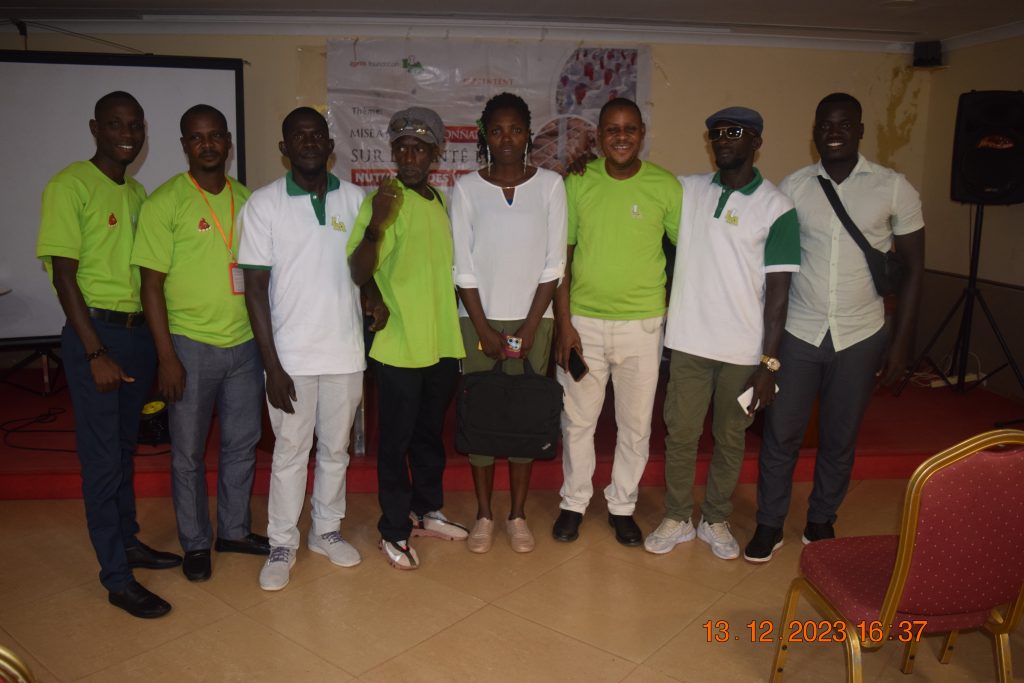
Identifying Key Challenges in Guinea Bissau’s Poultry Farming Sector: Report from Focus Group Discussions
The training program aimed at enhancing poultry farming practices in Guinea Bissau, a pivotal focus group discussion was conducted to delve into the critical challenges faced by poultry farmers across the country. Representatives from various groups participated, presenting the outcomes of their discussions and shedding light on the significant hurdles prevalent in the poultry farming sector.
1. High Cost of Poultry Feed: One of the foremost challenges highlighted by the focus group discussions is the substantial financial burden faced by poultry farmers due to the high costs associated with acquiring poultry feed, often sourced from neighboring countries like Senegal. This cost factor significantly impacts the profitability and sustainability of poultry farming operations.
2. Insufficient or Scarce Poultry Medication: Another prevalent concern among farmers is the limited availability or inadequate access to essential poultry medications. The scarcity of necessary medications poses significant challenges in maintaining the health and well-being of poultry stocks, impacting overall productivity and profitability.
3. Lack of Updated Knowledge: Participants in the focus group discussions emphasized the struggle faced by farmers in accessing current and relevant information necessary for efficient poultry farming practices. The lack of updated knowledge hampers farmers’ ability to adopt modern techniques, best practices, and innovations essential for optimizing farm operations.
4. Low Level of Technical Expertise: A significant challenge identified is the low level of technical expertise among poultry farmers. The dearth of skilled personnel and technical know-how hinders optimal farming practices, limiting opportunities for innovation, efficiency, and growth within the sector.
5. Market Problems: Market dynamics and structures present significant challenges to poultry farmers, impacting the profitability and sustainability of their operations. Issues such as fluctuating demand, pricing challenges, and limited market access contribute to the overall complexities faced by farmers in commercializing their poultry products.
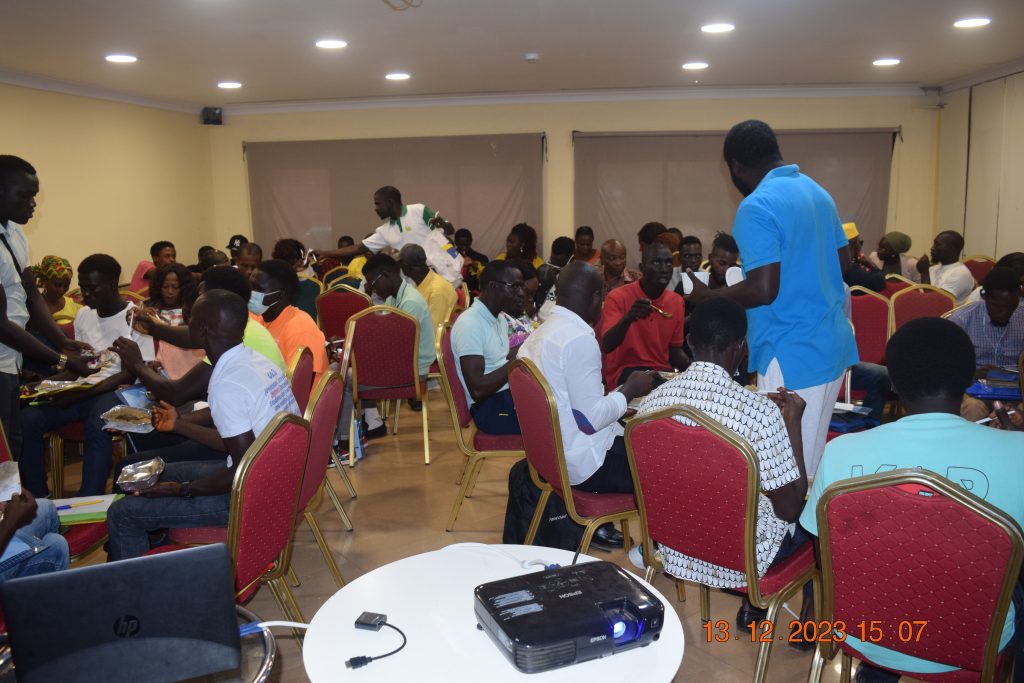
The focus group discussions underscored the multifaceted nature of challenges faced by poultry farmers in Guinea Bissau, encompassing financial constraints, limited access to medications and information, technical expertise gaps, and market-related issues. Addressing these challenges is paramount to fostering a more sustainable, resilient, and thriving poultry farming sector in the country. Efforts focused on improving access to affordable inputs, enhancing knowledge dissemination, building technical capacities, and addressing market constraints are essential steps toward overcoming these challenges and unlocking the full potential of Guinea Bissau’s poultry industry.
Paving the Way for Enhanced Poultry Farming Practices
The training program on poultry health and nutrition in Guinea Bissau received resoundingly positive feedback from participants, reflecting a high level of satisfaction across various dimensions of the program. The evaluation findings provide valuable participant’s perception into the program’s effectiveness and impact on the poultry farming community in the region
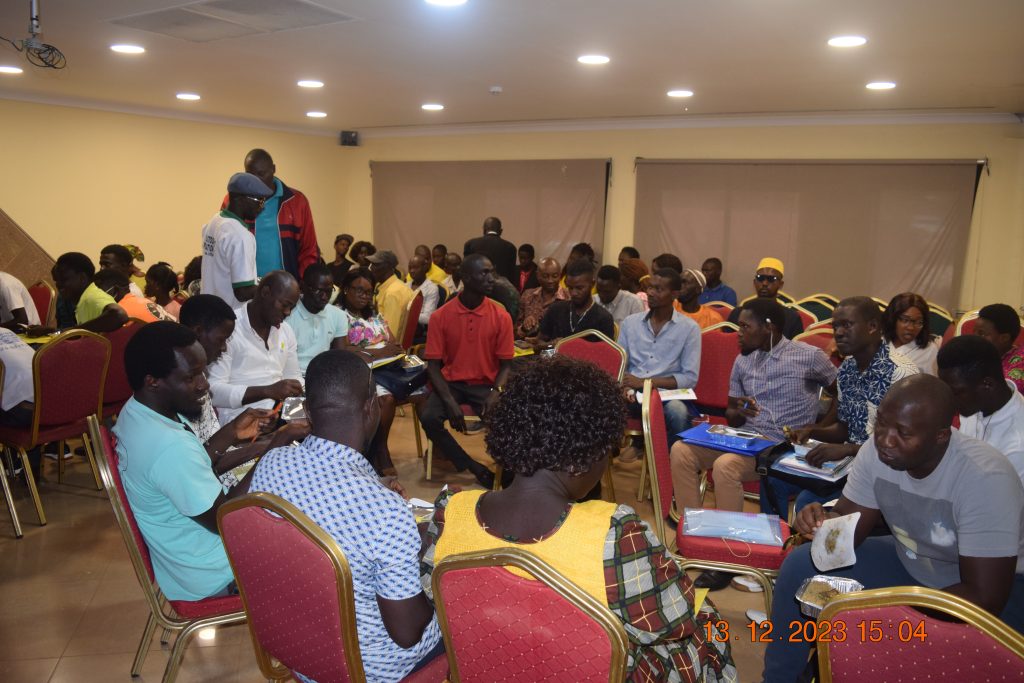
The comprehensive evaluation of the training program reflects its success in meeting participant expectations and addressing key challenges faced by poultry farmers in Guinea Bissau. From addressing the high cost of poultry feed to tackling medication availability, knowledge gaps, technical expertise, and market-related issues, the program has provided valuable measures and strategies for enhancing the resilience and sustainability of the poultry farming sector.
Moving forward, targeted efforts will be crucial in addressing the identified challenges and implementing actionable solutions to drive positive change within the poultry farming community. The overwhelming satisfaction expressed by participants shows the program’s effectiveness and relevance, signaling a promising trajectory for the continued growth and development of poultry farming practices in the region.

